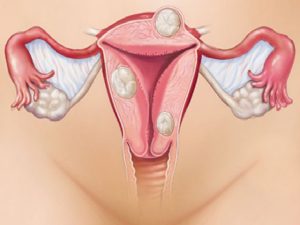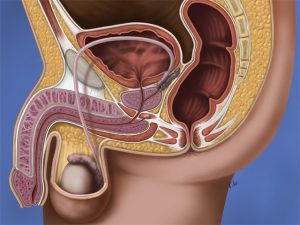Planning a pregnancy is an important and integral part of sexuality. One of the first ways to prevent unwanted pregnancy was the coitus interruptus (interrupted intercourse).
From the point of view of nature, every coitus should end with the conception of a child, but this is not always desirable. Therefore, the first methods of contraception were invented back in the days when people realized that sex ended in nine months with birth. How reliable is this methodology, does it have health risks, its advantages and disadvantages?

The principle of premature intercourse
What is premature intercourse?
It is sexual intercourse in which ejaculation does not take place in the woman’s vagina. That is, the man, sensing the approach of orgasm and ejaculation, simply removes his penis from the woman a few seconds before ejaculation. Its arrival is evidenced by impulses in the intimate organ: they are sent by the contracting muscles, pushing the sperm out of the testes, moving it along the seminal ducts.

The task of the man is to feel the moment when the sperm is ready to come out of the urethra, to have time to extract the organ from the partner.
According to statistics, about 70% of couples practice this method to prevent pregnancy. This can be explained by its simplicity and affordability.
Is PPA related to contraception?
From a medical point of view, the concept of contraception includes two factors:
Protection against unwanted pregnancy;
Sexually transmitted diseases.
If the method of IPA can (even if not with the highest reliability) prevent the possibility of getting pregnant, it cannot destroy viruses or bacteria or prevent their penetration.
Effectiveness – this criterion also leaves a lot to be desired. Practice shows that every fourth woman has become pregnant after an interrupted intercourse. It’s not even about the fact that the guy was sloppy or could not remove the intimate organ in time, but about male physiology:

- A small amount of seminal fluid is secreted long before ejaculation begins.
- This lubricant cleans the urethra, preparing a sterile path for the sperm.
- The number of spermatozoa in it is small, but the possibility remains that one of them gets to the uterus and “waits” for the egg there.
- Lubrication continues to be secreted during intercourse, when the head of the penis is in close proximity to the partner’s cervical canal, which also increases the risk of conception.
Spermatozoa remain active and mobile in the fallopian tubes for up to 7 days, so the probability of getting pregnant during interrupted intercourse is not much lower than during normal intercourse.

The method of interrupted intercourse may not work in these situations:
- several APA in a row: sperm remains in the head, which, the next time the penis is inserted into the woman, immediately ends up at the entrance of the uterus;
- Low level of self-control of the man: young age, disturbed psycho-emotional health, mental disorders;
- spermatheria (semen incontinence);
- period of ovulation.
Side effects of disrupted coitus
Many couples worry – can intercourse be interrupted? The side effects of PPA – what are they? These are physiological or psychological consequences for the body of the guy and the girl, which threatens the interruption of the intimate act. The former include:
- Risk of contracting an STD.
- Any intimate contact without a barrier contraceptive (condom) leads to an exchange of microflora. Therefore, viruses, bacteria, fungi easily penetrate the mucous membranes of the partner.
- Avoid the consequences is simple – use PPA as protection against pregnancy only after both partners have undergone a complete medical examination, cured all infectious diseases;
- Lack of sexual and moral satisfaction of the girl.
- Usually, the moment of removal of the penis from the vagina is at the beginning of orgasm in the partner, which does not contribute to its bright manifestation.
- A man’s preoccupation with how not to miss the responsible moment nullifies all the romance;
- Development of frigidity in a woman.
- Psychological block arising from the partner’s reaction to possible parenthood: A man is not ready for an heir, but does not want to use other contraceptive methods.
- Women know that it is possible to get pregnant even if they correctly terminate coitus, they begin to fear the undesirable consequences. The result is psycho-emotional discomfort, affecting the sexual health of the lady;
- Uterine myoma.
- The development of a benign tumor is promoted by hormonal imbalance, also occurring in the absence of a normal orgasm, disturbed by the early removal of the penis from the vagina.
Psychological disorders are also not uncommon. The thought of a possible pregnancy, especially if “half-protected” sex fell on dangerous days, does not allow a woman to fully relax, put aside negative thoughts, enjoy the process.

The same psychological discomfort is felt by the man – he has to control himself all the time. The result is a lack of unity and intimacy in the relationship. If the conception does occur, the pregnancy will have to be interrupted, the couple’s relationship is unlikely to last, because usually the ladies blame the careless, not too responsible partner, for the carelessness of which they pay with their health.
Advantages and disadvantages of interrupted intercourse
Interrupted sexual intercourse remains a popular method of protection against an unexpected pregnancy. There are reasons for this, too:
Availability
It’s the only “contraceptive” that doesn’t need to be bought, put on, inserted, etc. Every couple can use it (or at least try to), and in case of spontaneous sex it is indispensable. That is why it is common among teenagers or strong married couples: the former have no extra money for condoms, and the latter are not frightened by the possibility of getting pregnant.

Although PPA is not highly contraceptive, this method of preventing conception is better than none at all.
- No unhealthy ingredients.
Unlike hormonal contraceptives, coils, lubricants, vaginal pills, it has no side effects, contraindications. Except for allergies to sperm, in which intimate life is generally prohibited.
- Increased sensations from sex.
The condom reduces the sensitivity of the penis head, interrupted coitus allows you to feel all the joy of intimacy.
The disadvantages, which both partners should be aware of, are considered low effectiveness. But even this factor can be increased if you complement it a little with related contraceptive methods:
- It is possible to combine PPA with the calendar method: with a regular menstrual cycle, a girl calculates the favorable days for conception. Usually it is 6 days before ovulation and 3 days after, and the egg is released on the 13th-14th day of the cycle. During this period, it is better to have sex with a condom or use spermicidal lubricants, vaginal pills. Leave the less protected method of protection for safe days.
- Perform hygienic procedures after each intercourse. Thoroughly rinse semen residues from the genitals, as spermatozoa can easily penetrate a woman’s body during subsequent coitus. A small amount of semen still remains in the urethra, so complete cleansing will not be achieved.
Do not practice PPA all the time – the body gets used to this method of intimate contact, the man begins to face the fact that he cannot ejaculate while the penis is in the vagina. This is the first step to the development of psychological blocks.

The most unpleasant consequence of IPA is prostate disorders: according to medical statistics, more than half of men who have practiced interrupted intimate intercourse developed prostatitis at a young age.
Myths about Interrupted Coitus
Because interrupted coitus is not among the preferred methods of contraception endorsed by medicine, it is shrouded in myths and speculation. More than half of the couples have used this method at least once in their lives to protect themselves from unplanned pregnancy, but few people know about all its features.
Myth 1: IUD cannot protect against conception at all
This statement is based on the fact that the lubricant contains sperm and is released before ejaculation, which means that the way for the viviparous sperm remains open. This is true, but before they can enter the uterus, the sperms need to overcome the mucus of the cervical canal, and this is difficult.
Fertilization is usually not due to lubrication, but because the man just “didn’t have time.” Controlling the approaching orgasm is very difficult, and even experienced guys sometimes get into trouble, especially if it is preceded by strong sexual excitement, alcohol consumption, or developing health problems.
Conclusion: it is effective in part, that is, under favorable conditions: sobriety, complete self-control, etc.
Myth 2: If a guy prefers PPA, he’s irresponsible
Another misconception. Often this type of family planning is chosen by couples who are not going to consciously become parents, but in the case of a misfire will not be against having a baby. This method will come in handy if “I really want to, and there are no other means”. Therefore, it makes no sense to draw a conclusion about the upbringing and moral principles of the partner only on the basis of this situation.
Myth 3: A PPA has no advantages, only disadvantages.
Yes, a violation of the process, inherent to nature, leads to problems: physiological or psychological. But this method of protection has a lot of advantages:
It does not contain hormones or harmful substances that can lead to serious diseases if they are taken incorrectly or for too long.
You do not need to run to the pharmacy in the middle of the night, it is free, and does not require training or special skills.
If you follow the rules, it will protect you from pregnancy.
If these arguments are not enough for the couple, seriously discuss the issue of conception planning and choose the methods that will be suitable for both partners.
Conclusion
Interrupted intercourse (IUD) is not always endorsed by doctors and does not belong to family planning, but it has many fans. Such trust cannot be a sign of its complete ineffectiveness. The important condition before starting its practice is to know that everyone is healthy and will be ready to take responsibility for the little life that is conceived.
